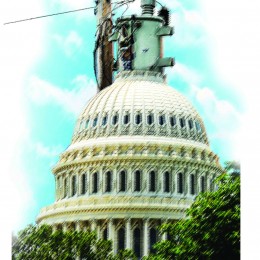 (This commentary originally appeared in the February 2008 issue of Electric Consumer.)
(This commentary originally appeared in the February 2008 issue of Electric Consumer.)
Abraham Lincoln was many things to many people … the greatest president, the Great Emancipator, savior of the Union, Honest Abe, a martyr to freedom. Poet Walt Whitman pined, “O Captain, My Captain” upon his death. Some go as far as to see him in a Christlike way: he sacrificed himself for the nation’s original sin of slavery.
To others, he was a tyrant who ignored the Constitution and usurped the rights of states.
Lincoln’s 200th birthday is next Feb. 12, but his bicentennial celebration begins this month. As the nation re-examines Lincoln in detail over the next two-plus years, we should also re-examine the political process today.
For while Lincoln was so many things to so many people, one thing he probably would not have been had he been born more recently is a contender for the White House.
Despite his intellect, incredible oratorical prowess, quick wit and self-deprecating humor, Lincoln’s gangling 6-feet-4 frame and homely looks wouldn’t sell well on TV. And if by chance it did, the buzzards in the broadcast media who feast on character blemishes like carrion would swoop in on Lincoln as well.
Lincoln was media saavy for his day and probably could have weathered assaults on the political front. But opponents and the media probably would have focused their attacks on Lincoln’s bouts with depression — and the tears he shed both in public and private.
What kind of media coverage with psychoanalysis and innuendo about mental weakness would we hear 24/7 today if we knew how deeply Lincoln grieved the death of his favorite son Willie? After Willie’s death in 1862, Lincoln visited the tomb of the 11-year-old — not once, but twice — to gaze upon the boy.
How many modern-day candidates would have their careers destroyed if stories of them suffering such profound grief came to light?
Before the New Hampshire primary early last month, a simple show of emotion once again became an issue. (And we just thought the war, the energy crisis and looming recession were the big issues.) Media types question: is it OK for a presidential candidate to cry in public? It was the lead story on the morning network shows and discussed all day by pundits on cable. The answer most leaned to was generally “no.”
Lincoln’s courage and fortitude were revealed daily in the struggle that was the Civil War. But he was also a man of great compassion. He shed tears. Once visiting injured soldiers at a field hospital, he came across a wounded Confederate. The soldier spoke to him; he responded; and in that moment of shared humanity, they shed tears together. I’d be more concerned about a stone-hearted president who didn’t weep over the death of a son … or the deaths of thousands of soldiers sent to battle. Or one who wept only if the current polls showed the public wanted a cry for the cameras.
I look forward to the Lincoln bicentennial celebration because Lincoln has much to teach us still — including lessons on humanity, compassion and tolerance.
While we don’t want an unstable, amoral or crooked person in the White House, we’ve created a world that revels in revealing slight personal imperfections. We snoop them out, then blow them out of proportion. We pay too little attention to ideas, ideals and skills.
Until we disenthrall ourselves, as Lincoln might say, from this paparazzi mentality, we’ll see fewer people like him rise to such political prominence. Lincoln may belong to the ages, but sadly, it seems, a person like him doesn’t much belong in our political climate today. And that should make us all weep for our future.



